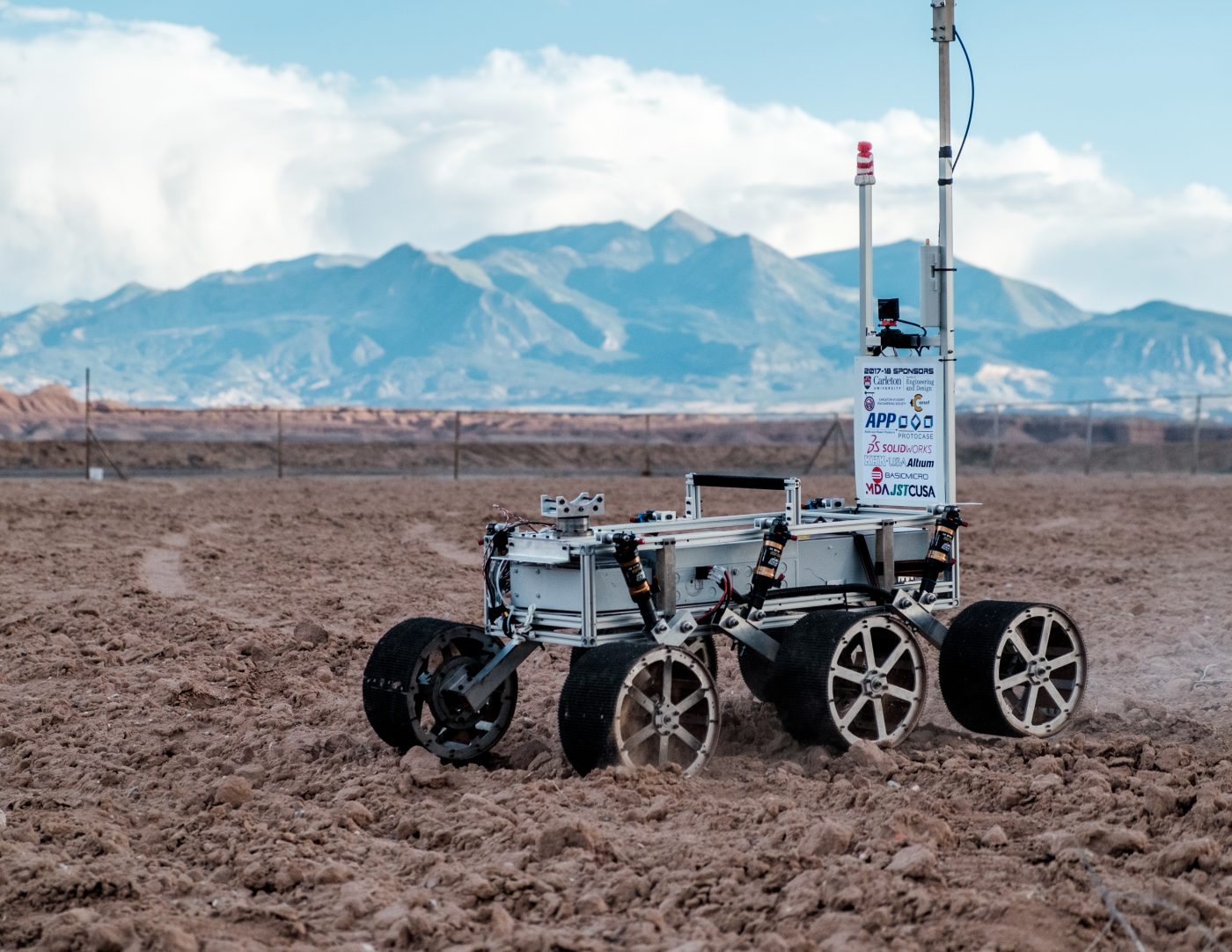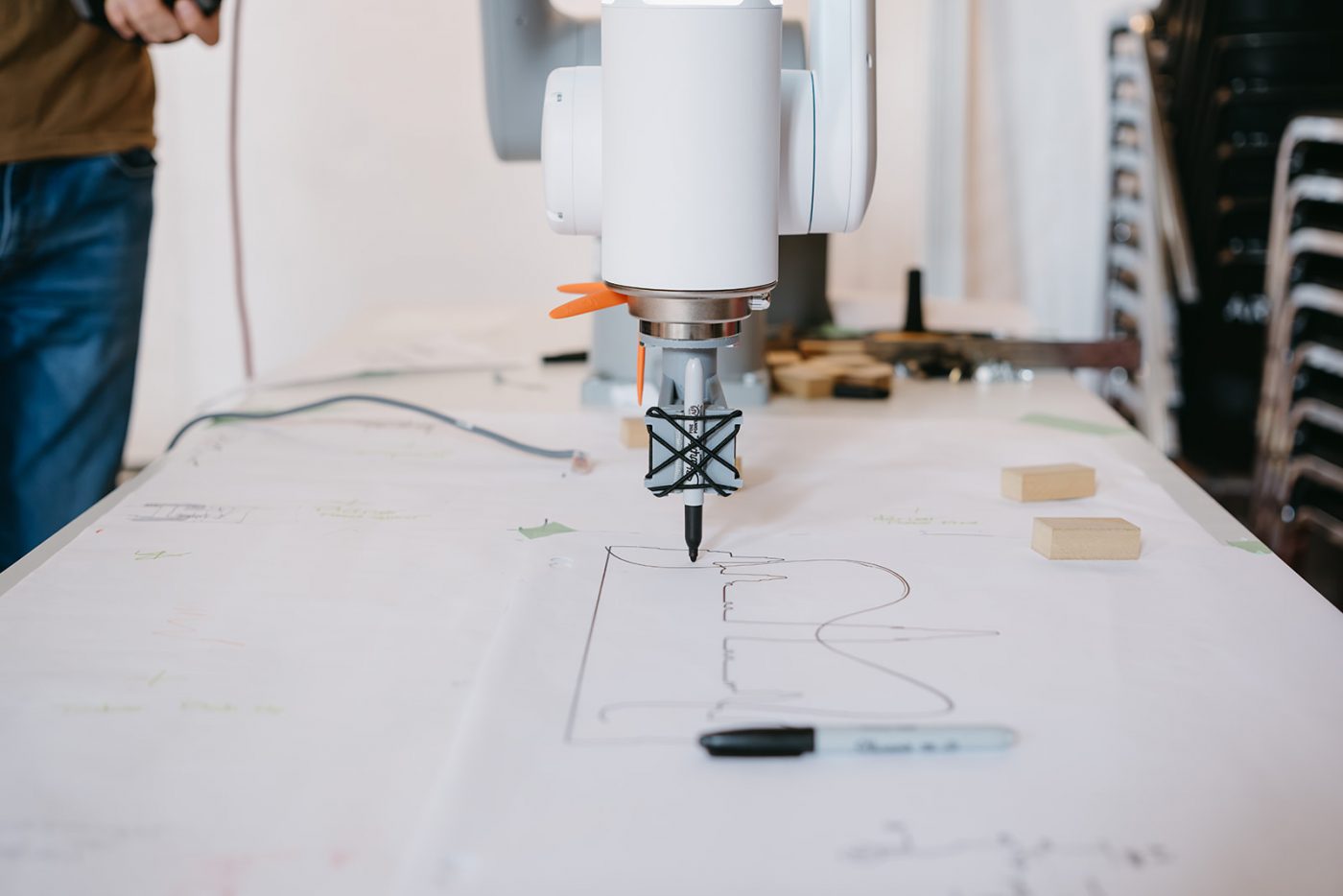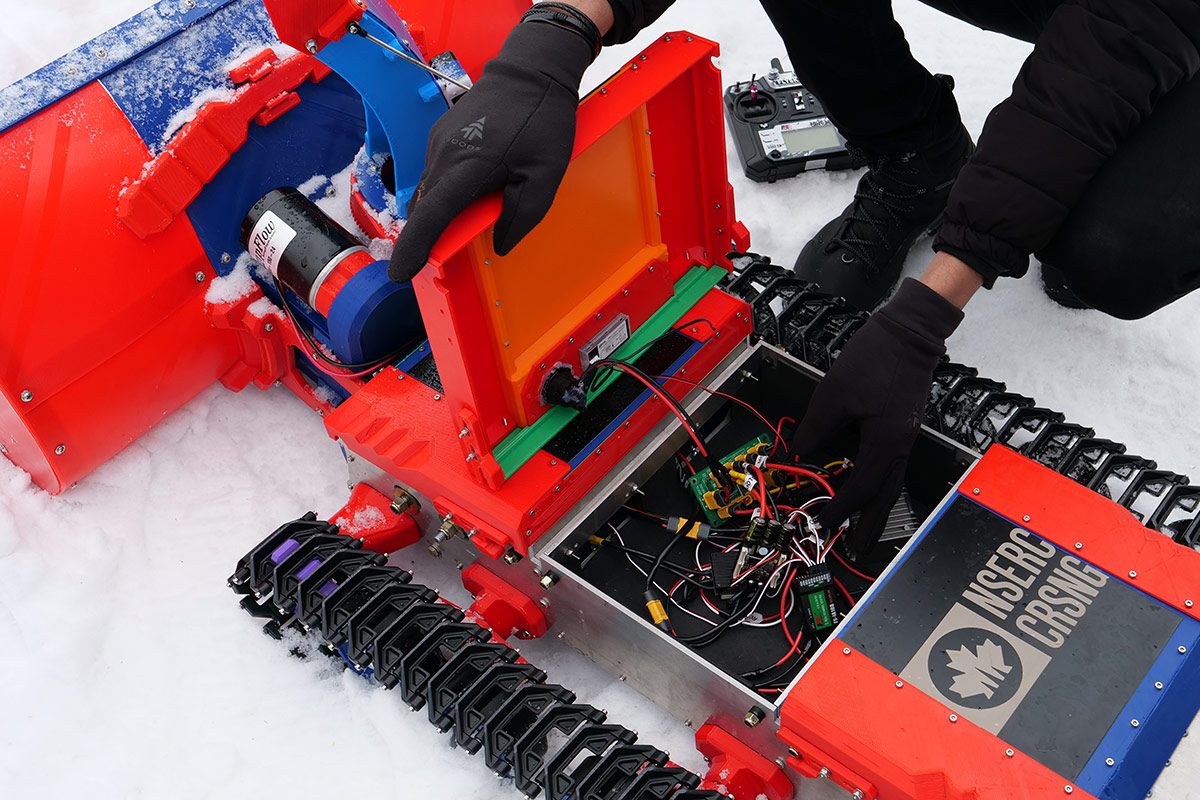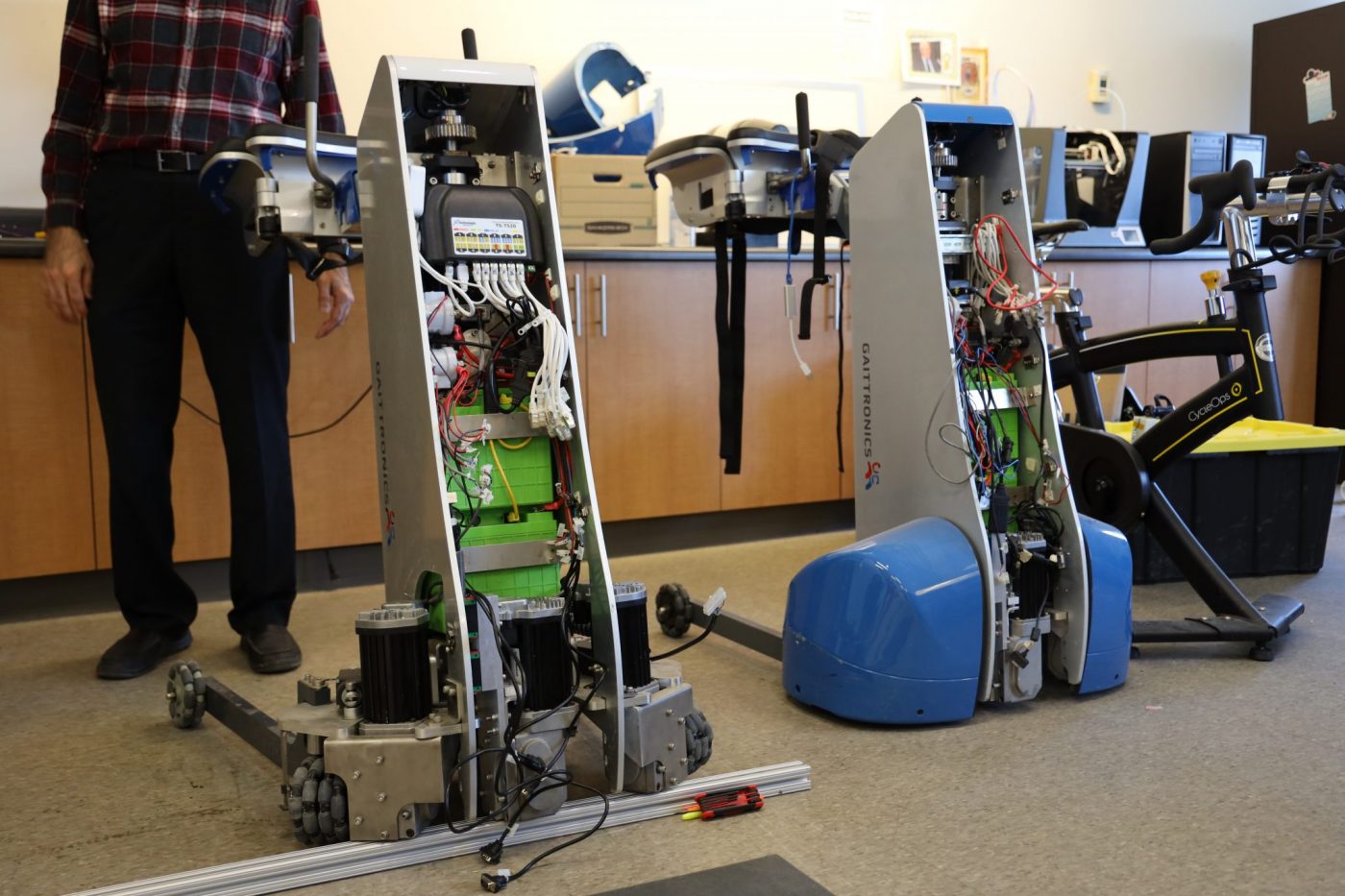Top 5 Robotics Innovation Stories of The Year
Christine Scholman
From helping older adults age in place, to space exploration in hazardous environments to crafting precise blueprints for the construction of new homes—robots have increasingly become tools we depend on to positively impact daily life, eliminate dangerous jobs and transform the world we live in. At Carleton, we’re leading the charge.
With another academic year coming to a close, join us in celebrating our students’ and researchers’ innovative robotics research and breakthroughs:
Building a Mars Rover

Carleton’s Planetary Robotics Team is a multidisciplinary group made up of over 200 students from engineering, biology, earth science, arts and social sciences. Their main objective is to design, build, and program a Mars Rover to compete in international competitions.
Each year, they aim to compete in the University Rover Challenge and the Canadian International Rover Challenge, hosted in Utah. Read the story here to learn more about Carleton’s extracurricular opportunities for hands-on learning for real-world skills.
The Future is Collaborative: a Partnership Rethinking Architectural Design by Incorporating Robotics and Automation

The Carleton Sensory Architecture and Liminal Technologies (CSALT) Laboratory, led by Associate Professor Sheryl Boyle, embarked on a pioneering journey. The lab integrated two ABB Robotics Canada “GoFa” robots, affectionately named Thelma and Louise, to explore robotic collaboration and reshape the future of architecture, engineering, and construction (AECO).
These cobots (collaborative robots) work alongside the CSALT Lab research team. Carleton University and ABB Robotics Canada (ABB) have partnered to redefine design workflows by seamlessly integrating robot collaborators into the heart of architectural creativity. It has the power to revolutionize the construction industry. Read the full story.
Maintaining the Rideau Canal Skateway… with Robots?

Shawn Kenny, a professor in the Department of Civil and Environmental Engineering at Carleton University, is working with a team of Carleton researchers and the National Capital Commission (NCC) on a unique solution: a fleet of snow-clearing robots designed to promote ice growth on the canal. This is one possible adaptation strategy in the toolbox that may address climate change effects and improve the resilience of the skateway. Read the full story.
Carleton PhD Grad Blasts Off With Space Robotics and AI Research

With the invention of the Canadarm, Canada has been at the forefront of space robotics since the early 1980s. This iconic 50 foot arm supported US space shuttle missions for 30 years and was built to deploy, manoeuvre, and capture payloads.
Almost a decade after its final flight, recent Carleton PhD grad Collins Ogundipe jumped on this Canadian legacy with the goal of pushing the field even further. Funded by the European Space Agency, he engaged in cutting-edge machine learning research designed to enhance the capabilities and efficiency of space robotic manipulators. Read the full story.
Creating AI-Powered Exoskeletons for Individual Mobility Needs

In Canada, about 13.7 per cent of individuals aged 15 and over report having mobility disabilities, requiring the use of assistive devices such as canes and wheelchairs to walk or climb stairs. Despite their widespread use, these traditional tools have limitations as they can cause physical strain, restrict terrain navigation, and pose daily accessibility challenges.
To address these issues, Carleton University researcher Mojtaba Ahmadi is designing advanced exoskeletons–wearable robotic devices powered by artificial intelligence (AI). Read the full story.